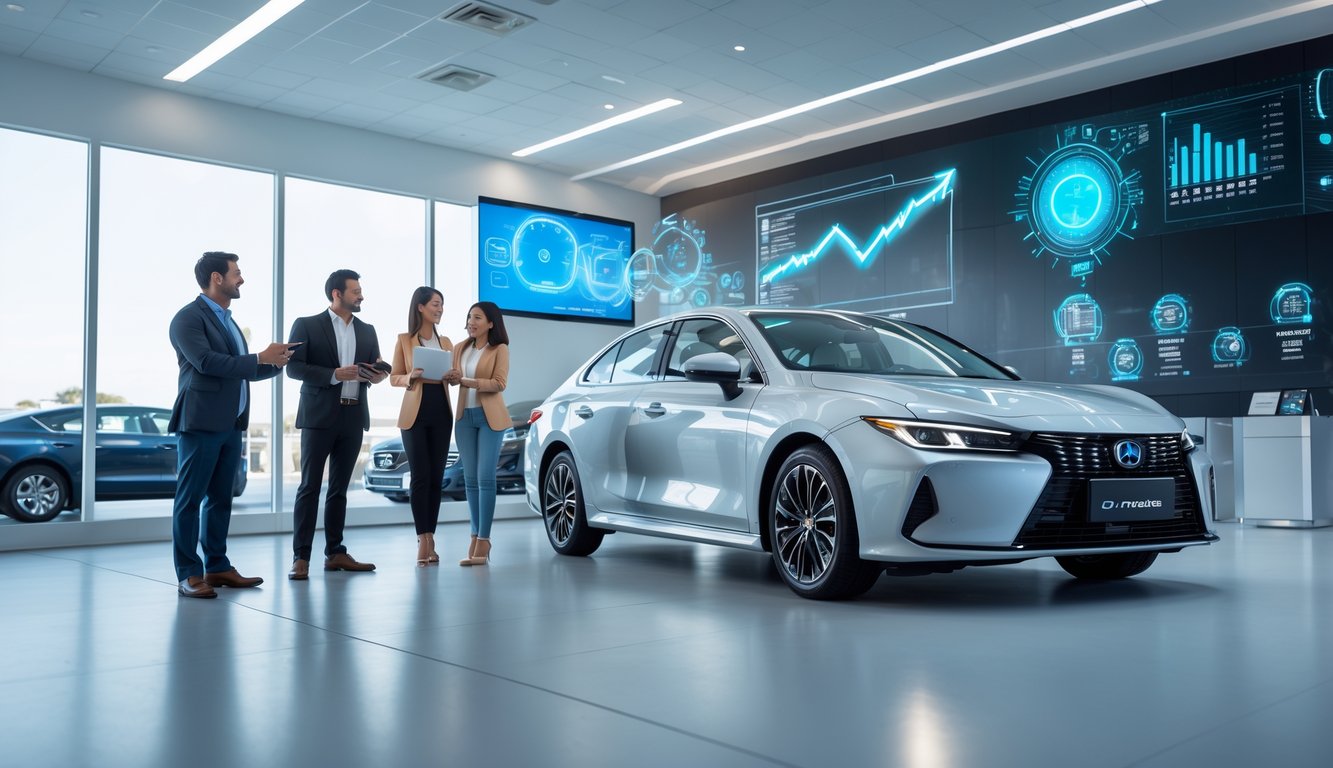
Safety, Performance, and Technological Advancements

I swear, every time car companies drop some “revolutionary” tech, everyone acts like it’s a free pass to save money and outsmart depreciation. Meanwhile, the real story? You’re one warranty expiration or touchscreen meltdown away from regretting that fancy upgrade. Ever seen a resale value nosedive just because a new safety widget became standard? Happens all the time. And let’s not even talk about those blinking dashboard icons—feels like half the time, nobody (not even the dealership) knows what’s actually wrong.
Influence of Safety Ratings and Features
Crash-test ratings everywhere—Euro NCAP, NHTSA, IIHS—honestly, it’s like alphabet soup. I can’t keep track. Sometimes a car gets a shiny new safety badge and still tanks in value because last year’s model suddenly looks ancient next to a “lane-keep assist” update. It’s almost funny, except it isn’t when you’re the one holding the keys to a car nobody wants.
Insurance companies? They’re sneakier than you think. I saw a stat (Edmunds, maybe?) showing midsize sedans with ADAS tech held onto 8–12% more value over three years, but only if that tech didn’t glitch out. Which, let’s be real, it sometimes does. I know a guy who bought a “Top Safety Pick Plus” car and then watched resale evaporate after a recall hit—turns out, there was a missing airbag sensor. Reddit was all over it.
Performance and Durability Trends
Horsepower numbers keep climbing, but do they matter if the car’s in the shop for turbo issues? I’ve lost count of how many “sporty” crossovers from 2022 are now worth less than a set of snow tires. That car depreciation breakdown I read last week? Basically, if your model gets hot for a second and then reliability rumors start, you’re toast. Especially with early hybrids—unless it’s a Prius, you’re rolling the dice.
Dealerships love slapping “certified” badges on anything with a turbo. My mechanic? He laughs at anything first-gen turbo electric. If you want to avoid repair bills the size of your rent, stick to boring old drivetrains. I’m watching early EVs, especially—year three hits, battery warranty’s almost up, and resale drops like a rock. “Future-proof,” they said. Sure.
All-wheel drive? Doesn’t mean much if you’re stuck replacing a transfer case—Mazda and Honda both had issues in the early 2020s. No review can paper over a repair bill.
Infotainment Systems and Tech Upgrades
You ever try to sell a 5-year-old luxury car with a screen that looks like a fossil? It’s brutal. Every time Apple CarPlay or Android Auto updates, another round of cars gets left behind. My friend’s 2019 BMW can’t pair with his new phone, and CarMax knocked $1,200 off the value. That’s just for a missing feature most people don’t even think about until it’s gone. Even small tech jumps can tank value.
Manufacturers claim they’ll fix stuff with over-the-air updates, but it’s hit or miss. The 2024 Hyundai Ioniq 5? One update bricked nav units in Illinois. Suddenly, that model’s a pariah on forums. Dealers get cranky, buyers get spooked, and everyone’s stuck waiting for backordered parts.
Someone I know paid $8,000 for Tesla’s FSD beta, didn’t realize it’s non-transferable, and now the car’s worth 10% less overnight. Early adopter tax, I guess. In cities, buyers want wireless CarPlay or nothing—doesn’t matter if the car’s spotless or maintained like a museum piece.
Depreciation and the Rise of Electric Vehicles
So, the used EV market? It’s chaos. Nothing new, but suddenly everyone’s panicking about resale, battery health, and how fast values swing. You ever try plugging in at night, fumbling for the cable, and think, “Is this really the future?”
Electric Cars vs. Gasoline Cars: Depreciation Gaps
People say gas cars drop fast, but EVs are in a league of their own. Fuel efficiency sounds nice, but look at the numbers—a 2022 Chevy Bolt EV listed for $37k, now worth maybe $15k. That’s 61% gone. Not a typo, and not even rare.
Line up 10-year-old EVs and gas cars, and it gets ugly. Gas: lose half, maybe 70%. EVs? 60–90%. People whine about rust, but a tired battery is way worse for resale.
Everyone blames tech moving too fast. Maybe, but then why is it so hard to sell a three-year-old EV without a fire-sale price? I don’t get it.
Battery Longevity and Resale Value
Battery health is a total wild card. I’ve heard all the promises—eight years, 100k miles, “relax!”—but put that car on the used market and buyers start sweating over battery degradation. Some 10-year-old EVs have 30% less range, and resale just craters.
Dealers talk about $5k to $20k battery replacement costs. Even if you won’t need one, try convincing a used buyer it’s not a big deal. Nobody wants to gamble on hidden problems, and checking battery health is still a pain.
My neighbor flips EVs for fun—says only buy used if you can see real battery reports, not just “it’s fine!” from the seller. Still feels risky.
Changing Consumer Perceptions
People act like EVs are clever budget hacks, but then you see them at open houses, dodging questions about depreciation. I went to an EV club last spring—half the crowd was shocked it takes way longer to sell a used Leaf versus a gas Civic. Stats don’t lie: more than half of used EVs in 2024 sat on the market over 42 days.
Tech leaps are a double-edged sword. 250-mile range sounds great until last year’s 150-miler looks ancient. Tax credits soften the blow, but most people just see their car’s value dropping, month after month.
Fuel savings? Cool, but does it really make up for losing thousands on resale? And nobody ever talks about those random software updates that break features you actually liked. Don’t get me started.
Timing Your Purchase To Outsmart Depreciation
I’ve wasted so many nights scrolling used car prices, hoping for a miracle drop. There’s a rhythm to value drops, but good luck catching it. Miss the window, and you’re out thousands—nobody warns you about that.
Market Cycles and Ideal Buy Times
Holiday sales? Overrated. Everyone rushes in, but prices barely move. The real deals show up after new models drop and lease returns flood the lot. Consumer Reports says buying a 2- to 3-year-old car saves you that first 30% hit. Why do people still buy new at the worst time, like right before a redesign? Makes no sense.
Reddit’s full of people admitting they bought at the wrong moment—prices dropped weeks later. I always watch after a big redesign, then check competitors. Sometimes the best deals pop up when nobody’s shopping, like late summer or January. It’s random, but it works.
Financial Decisions for Smart Timing
Everyone dreams of the perfect deal, but it’s more like playing chess with a blindfold. Pay top dollar at peak demand, and you’re just burning money. J.D. Power keeps saying it: time your buy, don’t rush.
Here’s what nobody talks about—maintenance timing. Buy right before a 50k or 100k mile service, and you get hit with both depreciation and big repair bills. My mechanic buddy rants about this: buy after routine service, before the next big one, and you dodge both. It sounds backwards, but your bank account will thank you, even if your logic can’t keep up.
